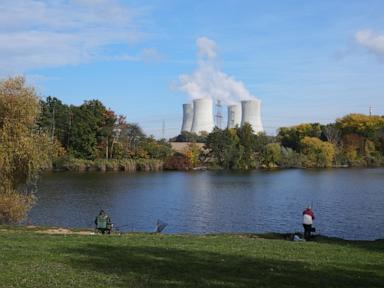The Czech Republic is advancing a significant nuclear energy initiative, committing approximately $19 billion to expand its nuclear infrastructure. This expansion, centered at the Dukovany Nuclear Plant, aims to double the nation’s nuclear output and reduce reliance on fossil fuels. As part of the project, geological surveys are underway, with mobile drilling rigs extracting samples from depths of 140 meters to ensure the site is suitable for the new reactors.
The construction will feature two new reactors with a combined output exceeding 1,000 megawatts each. South Korea’s KHNP has secured the contract, outbidding France’s EDF. These reactors are expected to become operational in the second half of the 2030s and will complement the existing four reactors at Dukovany, which have been in operation since the 1980s. The agreement also includes the potential for two additional units at the Temelín nuclear plant.
Strategic Goals for Energy Independence
Petr Závodský, chief executive of the Dukovany project, emphasized the importance of this nuclear expansion in ensuring energy security and achieving environmental goals. “Nuclear will generate between 50% and 60% of electricity around 2050 in the Czech Republic, or maybe slightly more,” he stated in an interview with the Associated Press. This initiative aligns with the country’s objectives to phase out fossil fuels, maintain stable energy supplies, and meet growing electricity demands driven by data centers and electric vehicles.
The European Union’s acceptance of nuclear power as part of its environmental sustainability framework has further invigorated nuclear projects across member states. Countries such as Slovakia, Hungary, and France have historically relied on nuclear energy, and recent shifts in energy policy have prompted nations like Belgium and Sweden to reconsider their stance on nuclear energy.
Financial Backing and Future Prospects
The Czech government, which holds a 70% stake in the dominant power company CEZ, has agreed to acquire an 80% majority in the new plant. Financial backing will come in the form of a loan that CEZ will repay over a period of 30 years. Additionally, the state will guarantee a stable income from electricity production for 40 years, providing a solid foundation for the project. Approval from the European Union is anticipated, as the bloc strives to achieve climate neutrality by 2050.
While nuclear energy garners significant public support in the Czech Republic, it also faces criticism. Environmental groups like Friends of the Earth question the financial viability of nuclear projects, arguing that funds could be better allocated towards renewable energy sources. Concerns about the management of nuclear waste and the absence of a permanent storage solution also persist.
The proximity of the Dukovany and Temelín plants to the Austrian border adds a layer of complexity. Austria, which abandoned nuclear energy after the Chernobyl disaster, remains skeptical of nuclear power and has previously engaged in disputes over the Temelín facility. The Austrian Parliament has already expressed opposition to the planned small modular reactors, which reflects ongoing tensions regarding nuclear energy policy in the region.
As energy demand continues to surge and deadlines for reducing carbon emissions loom, the Czech Republic’s nuclear expansion project positions the nation as a leader in nuclear energy within Europe. The collaboration with international partners, including a deal with Westinghouse and Framatome for nuclear fuel, demonstrates a commitment to reducing dependence on Russian energy sources.
In conclusion, the Czech Republic’s ambitious nuclear expansion represents a pivotal step towards energy independence and sustainability. As the nation seeks to navigate the challenges of energy transition, its investment in nuclear power will likely play a critical role in shaping its energy landscape in the decades to come.
